Heysham firm's lifesaving ‘NAPpads’ track rough sleepers’ breathing keeping them safe and off the streets
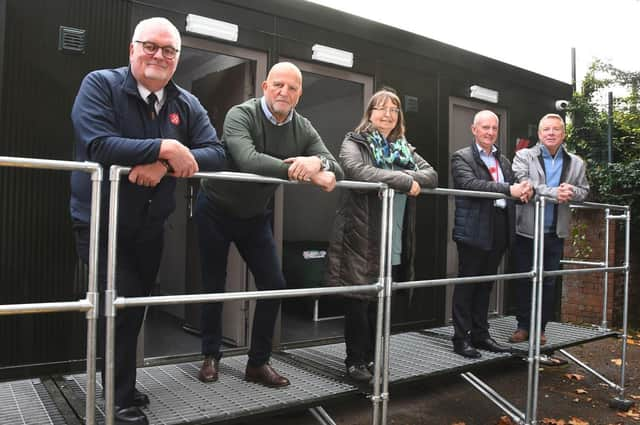

The ‘NAPpad’ (Night-time Accommodation Project), was designed, developed and built in Heysham by Protectal, with input from the Salvation Army, homeless charities, outreach workers, and people suffering homelessness.
The NAPpad uses microwave technology to ensure rough sleepers seeking shelter are safe, warm and have uninterrupted sleep whilst increasing the chances of survival in the event of an emergency.
Advertisement
Hide AdAdvertisement
Hide AdThe pilot is also being supported by City of York Council, who have temporarily provided land for the scheme and support for those using the pads.
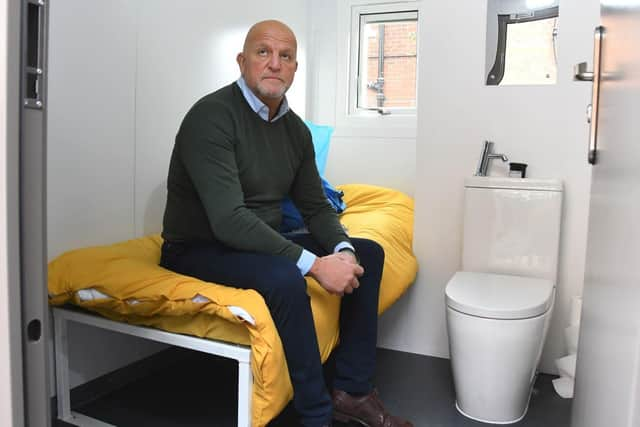

NAPpads are fitted with non-invasive ‘vital life signs’ sensors sensitive enough to detect whether someone has stopped breathing so emergency services can be alerted, giving responders vital minutes to save a life.
The vytalsign sensors are based on technology and are being trialled for drug-rehabilitation and sleep apnoea treatments.
Each NAPpad room is self-contained with toilet and wash facilities, with steel coated rockwool filled walls, ensuring safety, strength, sound-proofing and fire protection, fitted with a security door, with state of the art electronic security locking mechanism for remote access and safety assurance for users; windows with built-in blinds to ensure privacy, safety and ventilation; the energy efficient heating is fitted in to the skirting boards, ensuring safety, warmth and reduce damage, LED lighting; and a point to charge phones or other mobile devices. Not only do they protect rough sleepers from a harsh winter on the streets, the pads offer a dignified and private space to sleep.
Advertisement
Hide AdAdvertisement
Hide AdMalcolm Page, Salvation Army assistant director for homelessness services, said: “Sadly, most rough sleepers have multiple health problems as sleeping on the streets is dangerous and tough on the body so these pads mean we can keep people safe as well as warm and dry.
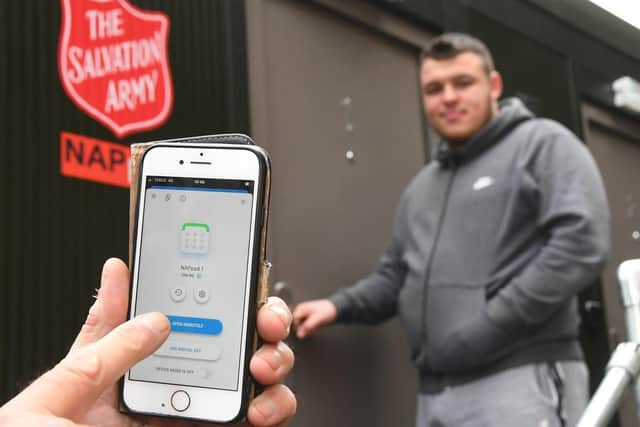

"A key element in our ‘trauma-informed’ approach, they provide dignified sanctuary from the streets for people who may be suffering from mental health issues.
“People end up being forced to sleep rough for so many reasons which can include poor mental health, addiction, relationship breakdown and job loss. Tackling homelessness is more than offering shelter, it is helping people to move on from the reasons they were forced to sleep on the streets in the first place.
“The pads offer an informal setting to meet with our support team to explore more permanent housing and support options.”
Advertisement
Hide AdAdvertisement
Hide AdFormer rough sleeper Jay, 19, said: “It would have made such a difference to me – to have a warm bed, a locked door and safety. It would have meant not having to choose the street over a hostel.
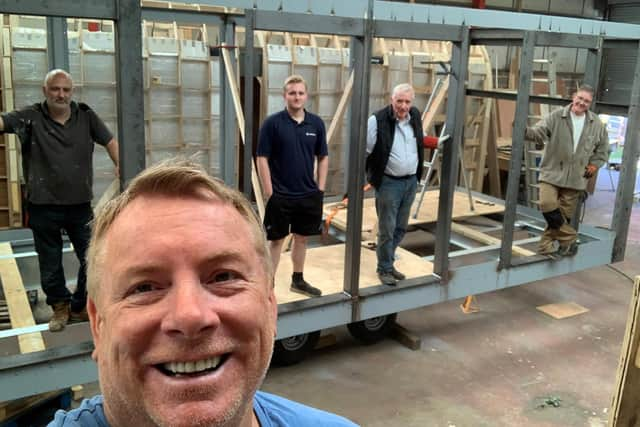

“The technology to make sure you are safe is amazing. Knowing that it’s safe and if something goes wrong, someone is going to help you is a comfort. On the streets, if you can’t breathe nobody knows, nobody knows where you are and nobody can call for help. This will be life-saving.”
Working homeless rough sleeper Sarah, 16, said: “I want to work, so I got a job and because it’s at night, I can’t sleep in a hostel because they’re not open. I have nowhere to store my belongings. My auntie is visiting today, so I’ll be able to sleep in a chair in her hotel this afternoon. When she’s gone I’m back to trying to find a safe place, so this would be great for someone like me.”
With an energy efficient heating and water system, once up and running, the NAPpad can keep someone safe using the same amount of energy per night as a domestic light bulb*. They can be moved to different locations to meet local need.
Advertisement
Hide AdAdvertisement
Hide AdProtectal co-founder Pete Wood said: “It was vital that the pads offer dignity to occupants as well as helping manage potential risks to them. Potentially, many of the occupants will have been sleeping on the streets for some time and have poor health.
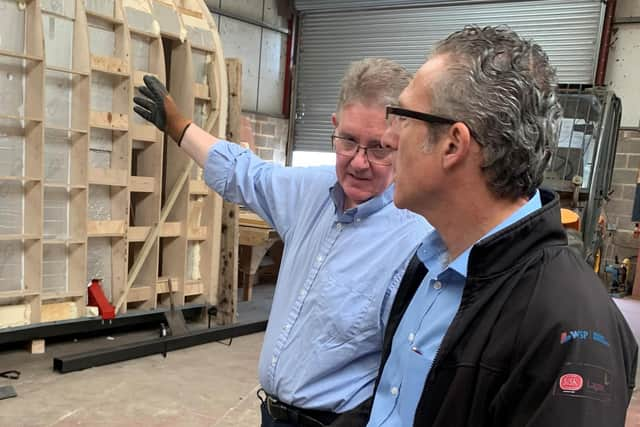

“Early deaths of people exposed to rough-sleeping are common. In residential accommodation, staff can monitor occupants and ensure they are safe. We wanted to offer the same level of care to those who would use the pods, even if only there for a night.
“We’ve worked with rough sleepers and sector professionals to get the design of the NAPpads right and ensure they are eco-friendly. Each unit is temperature controlled and can be run off solar power.”
NAPpad designer, Mark Moore, said: “It was incredibly fulfilling to work on such a meaningful project. We worked hard to ask for advice and understand the challenges, complexities and needs of this issue. Our aim was to address the service gap and to hopefully make a real difference by complimenting existing strategies.”
Advertisement
Hide AdAdvertisement
Hide AdCoun Denise Craghill, executive member for housing and safer communities at City of York Council, said: “We are always looking for innovative solutions to help support our most vulnerable residents, particularly during the winter. We are pleased to support this Salvation Army pilot project”
“Our Winter Plan is designed to ensure that no one needs to sleep out in York and the NAPpads will supplement them this winter with a further innovative option, particularly for people who are concerned about going into a hostel.”
Rachael Maskell, MP for York Central, described the NAPpad as an ‘innovative solution to provide dignity and independence in a safe environment for some of York’s most vulnerable residents’.
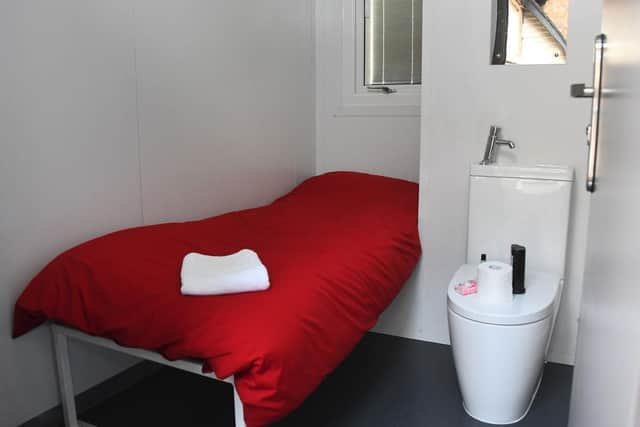

She said: “From monitoring someone’s vital signs to providing a safe, secure and comfortable micro-flat for the night, someone without a home or means, can be guaranteed a safe, warm and dry night.
Advertisement
Hide AdAdvertisement
Hide Ad“The innovation, design, manufacture and execution of this prototype unit, through a partnership of the Salvation Army and Protectal Ltd, just shows what can be achieved. In having the first NAPpad in the country in York, the spotlight will not only be on their success, but on how they move people from the streets to somewhere safe and warm.”
Mr Wood added: “It has been an emotional journey, to learn about the complexities, loneliness, dangers and fear facing people, who have found themselves on the street, often through no fault of their own. I am proud of what we have created, we want them to know, the hard time will pass and people do care.’
The Salvation Army and Protectal Ltd are now looking to roll NAPpads out more widely.
The NAPpads provide accommodation at the moment of need. Referrals can be made via the York EIP hub at 63 Lawrence Street between 10am and noon Mondays to Fridays, or through referral agencies.
Advertisement
Hide AdAdvertisement
Hide AdProtectal Ltd was founded to work with the Salvation Army to deliver first-step intervention accommodation for people experiencing long-term homelessness.
Set up by Peter Wood and Mark Moore, who have backgrounds in energy and engineering consultancy, they worked with support workers and service users on the design of the NAPpad.
For more information visit here.
Comment Guidelines
National World encourages reader discussion on our stories. User feedback, insights and back-and-forth exchanges add a rich layer of context to reporting. Please review our Community Guidelines before commenting.